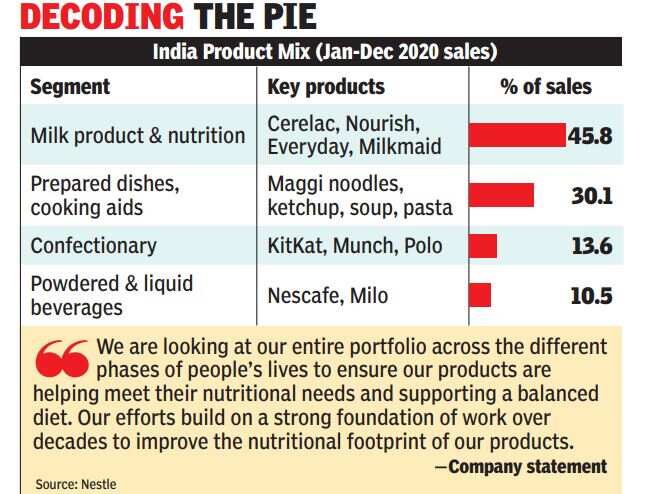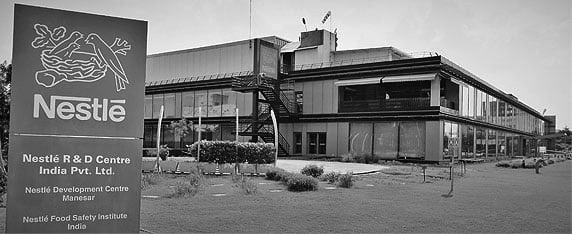Faced with over 60% of its product portfolio falling into the “unhealthy” segment, Swiss food giant Nestle is looking to reduce the sodium content and launch new products that offer healthier options to consumers in India as well as globally.
A leaked internal document has prompted the company — which has milk, instant noodles, soups, chocolates and coffee among its top product offerings — to accelerate the launch of fortified products and rapidly reduce the percentage of salt and sugar in its existing offerings, sources familiar with the strategy told TOI.
Options such as spinach and atta Maggie and Fruit O’Nuts Munch are part of the plan, with the R&D centre at Manesar being tasked with coming up with healthier options. “Our products comply with the local standards, but we are constantly seeking to innovate and renovate our products to reduce the sodium content,” said a source, while adding that the exercise is being undertaken globally.

Nestle is not the only global food company under scrutiny for its product portfolio. PepsiCo and McDonald’s are among global giants, which have had to alter their offerings as they were accused of giving unhealthy products, which resulted in trebling of obesity since 1975 and a rising share of population being affected by diabetes and other lifestyle issues.
The company acknowledged that it is reviewing its strategy. “We are looking at our entire portfolio across the different phases of people’s lives to ensure our products are helping meet their nutritional needs and supporting a balanced diet. Our efforts build on a strong foundation of work over decades to improve the nutritional footprint of our products. For example, we have reduced sugar and sodium in our products significantly in the past two decades, about 14-15% in the past seven years alone,” Nestle SA said in a statement.
As a first step, it is assessing the part of the food and beverage portfolio that can be measured against external nutrition profiling systems. “Systems like the Health Star Rating and Nutri-Score are useful in this regard and enable consumers to make informed choices,” said the company, which sells just nine of its 35 global billionaire brands in India.
An international presentation circulated among top Nestle executives earlier this year revealed only 37% of Nestle’s food and beverage products had a rating of over 3.5 as per Australia’s health star rating system, in which products are given scores out of five. Reports suggested that Nestle acknowledged that a part of its portfolio will never be healthy no matter how much the company tried.
Under its CEO Mark Schneider, the company has sought to acquire nutritional supplements and vitamins, while seeking to expand its coffee and plant-based businesses. At the same time, it has restructured some of its businesses in the US and China.
Source : Times of India Jun 02,2021 by John Sarkar /TNN

